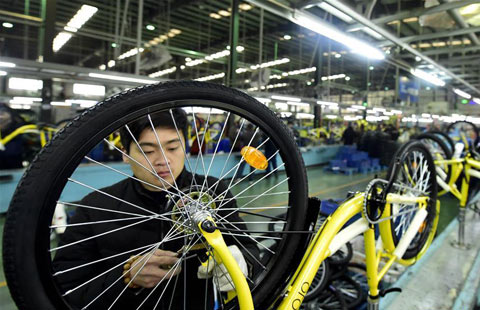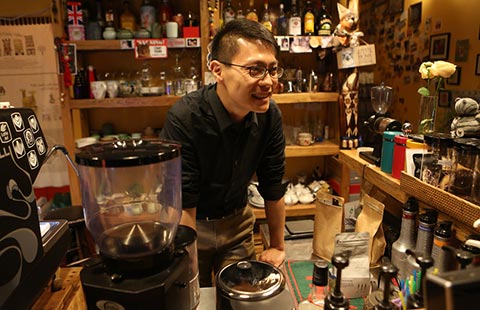Unlicensed helpers lending a hand
Now, however, Peking Union Medical College Hospital, one of Beijing's biggest hospitals, is trying to restore the role of qualified nursing assistants. Six work in the hospital's intensive care unit, including Cheng Jianhua, 43, from Sichuan province who has been working in the ICU for more than a year.
She was originally a freelance hugong, but now she's a fulltime hospital employee, which provides her with medical training and welfare. "I make 2,100 yuan a month, about the same salary I got before," she said. "But it's more stable and I only work eight hours a day. Before, I often stayed up all night taking care of the patient, and the next day I still needed to do all the work by myself."
Huang Xiaobin, 52, is in charge of training nursing assistants at the hospital. She admitted that even though the hospital provides welfare, few people are willing to take the job. "Some people quit after a few days, saying there's too much work and that it's too intense or too dirty, or the wages are too low," she said. "We are trying to teach them to become qualified healthcare workers, but we also need to keep them."
Given China's aging population, the demand for nursing assistants is growing in many regions across the country, according to Huang Renjian, director of the Chinese Nurse Association.
Having helped write a textbook for nursing assistants, Huang is adamant that more people should take the course and gain the certificate. To facilitate that, she urged the government to subsidize training and wages to increase income and prestige.
"As their skills improve and their income grows, the stereotype of the nursing assistant will change and reflect what it once was; a stable, professional and decent job," she said.
- Graduates from elderly-services major in demand
- Nursing homes to cover Beijing's elderly population
- Shanghai establishes standard to categorize elderly
- Increase in rural nursing homes set
- Nursing homes reject childless couple
- Tianjin to open more aged care facilities
- Beijing plans more nursing homes for senior citizens

















